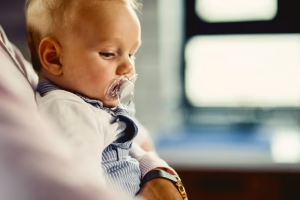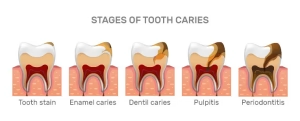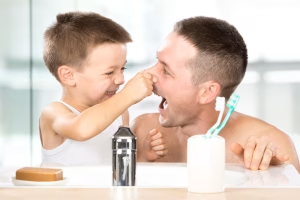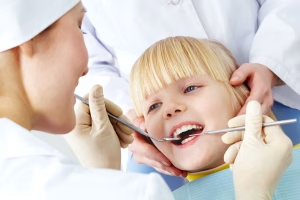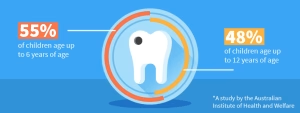Baby Bottle Tooth Decay: Protecting Your Child’s Smile
10 September 2023
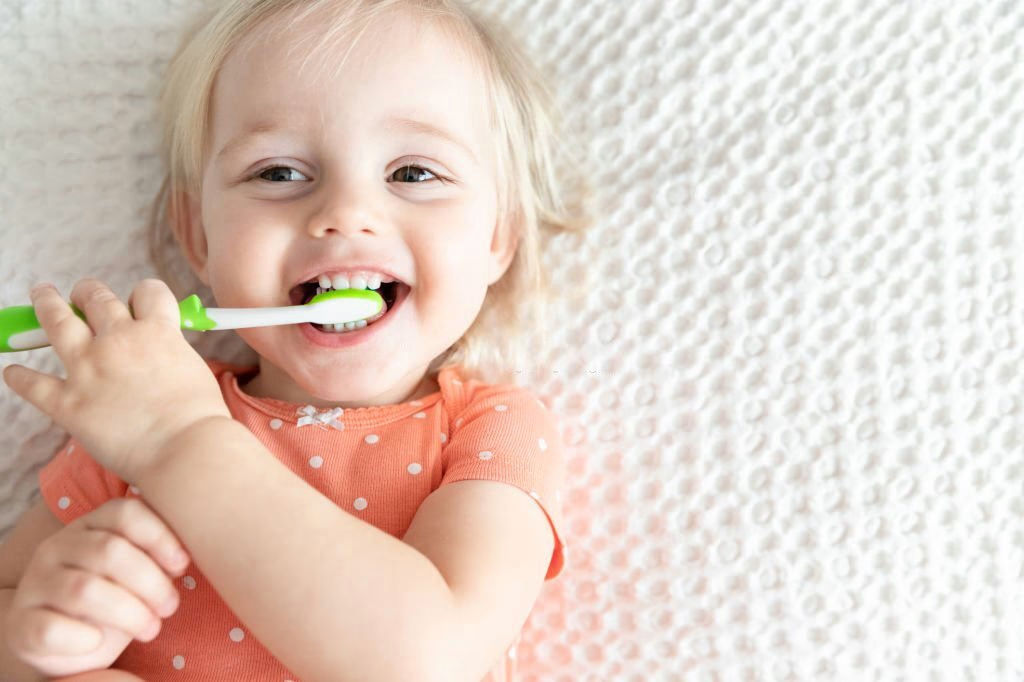
As young and future parents, we prioritize the health and well-being of our little ones. From ensuring they have a balanced diet to providing a safe environment, we do everything in our power to give them the best start in life. However, one aspect that often goes unnoticed is the oral health of our infants and toddlers. Tooth decay in these young ones, commonly known as Baby Bottle Tooth Decay or Early Childhood Caries, can have a significant impact on their overall health and development. In this blog post, we will explore the causes of Baby Bottle Tooth Decay and offer practical tips to prevent it, ensuring our children have strong, healthy teeth to chew their food, speak clearly, and maintain a beautiful smile.
Understanding Baby Bottle Tooth Decay
To effectively prevent Baby Bottle Tooth Decay, it is crucial to understand its causes and how it affects our children’s oral health. Baby Bottle Tooth Decay occurs when the teeth of infants and toddlers are frequently exposed to sugary liquids, such as milk, formula, juice, or sweetened beverages. The sugars in these liquids combine with the bacteria in the mouth, forming acids that attack the tooth enamel. Over time, this acid erosion leads to cavities, pain, and potential tooth loss, which can have long-term consequences on a child’s oral health.
Furthermore, it’s important to note that Baby Bottle Tooth Decay is not limited to bottle-feeding alone. Prolonged use of sippy cups or constant breastfeeding can also contribute to this condition. The frequent and prolonged exposure to sugary liquids creates an ideal environment for bacteria to thrive, leading to the deterioration of tooth enamel.
It is heartbreaking to witness our little ones in pain or discomfort, and Baby Bottle Tooth Decay can cause just that. To protect our children from this preventable condition, let’s explore some practical steps we can take.
Preventing Baby Bottle Tooth Decay
Prevention is always better than cure, and when it comes to Baby Bottle Tooth Decay, a few simple measures can make a significant difference in our children’s oral health. Here are some key strategies to consider:
1. Introduce Dental Care Early: As soon as your child’s first tooth appears, it’s time to start their dental care routine. Gently clean their teeth with a soft, damp cloth or infant toothbrush. Gradually, introduce a small amount of fluoride toothpaste, about the size of a grain of rice, when they turn one year old. Remember to supervise brushing to ensure they do not swallow the toothpaste.
2. Limit Sugary Liquids: Avoid giving your child sugary liquids, especially at bedtime. If you choose to offer milk or formula at night, make sure to clean their teeth afterward or give them water to rinse their mouth. Additionally, limit the use of sippy cups, as constant sipping can prolong the exposure of teeth to sugars.
3. Encourage Healthy Eating Habits: A balanced diet plays a vital role in maintaining oral health. Include a variety of fruits, vegetables, whole grains, and lean proteins in your child’s meals. Limit their consumption of sugary snacks and beverages, opting for healthier alternatives like fresh fruits or water.
4. Schedule Regular Dental Visits: Starting around the age of one, schedule regular dental visits for your child. A pediatric dentist can monitor their oral health, provide preventive care, and offer guidance on proper oral hygiene techniques.
Creating Good Oral Hygiene Habits
In addition to the preventive measures mentioned above, establishing good oral hygiene habits is key to protecting your child from Baby Bottle Tooth Decay. Here are a few tips to help you create a healthy dental routine:
1. Lead by Example: Children often learn by imitating their parents. Let them see you brush and floss your teeth regularly, making oral hygiene a family affair.
2. Make Brushing Fun: Brushing your child’s teeth doesn’t have to be a chore. Use a colorful, child-sized toothbrush and let them choose their favorite flavored toothpaste. Sing a song or play a game to make brushing time enjoyable.
3. Supervise Brushing: Until your child develops the dexterity to brush independently, supervise their brushing sessions. Guide them on proper technique and ensure they brush for at least two minutes.
4. Don’t Forget to Floss: As soon as two of your child’s teeth touch, it’s time to introduce flossing. Teach them how to floss gently between their teeth, removing any food particles or plaque.
Conclusion
Our children’s oral health is a crucial aspect of their overall well-being and development. By understanding the causes of Baby Bottle Tooth Decay and implementing preventive measures, we can protect their smiles and set them up for a lifetime of healthy teeth. Introduce dental care early, limit sugary liquids, encourage healthy eating habits, and schedule regular dental visits. Additionally, create good oral hygiene habits by leading by example, making brushing fun, supervising brushing, and incorporating flossing into their routine. By following these guidelines, we can ensure our little ones have strong, healthy teeth to chew their food, speak clearly, and maintain a beautiful smile for years to come.



